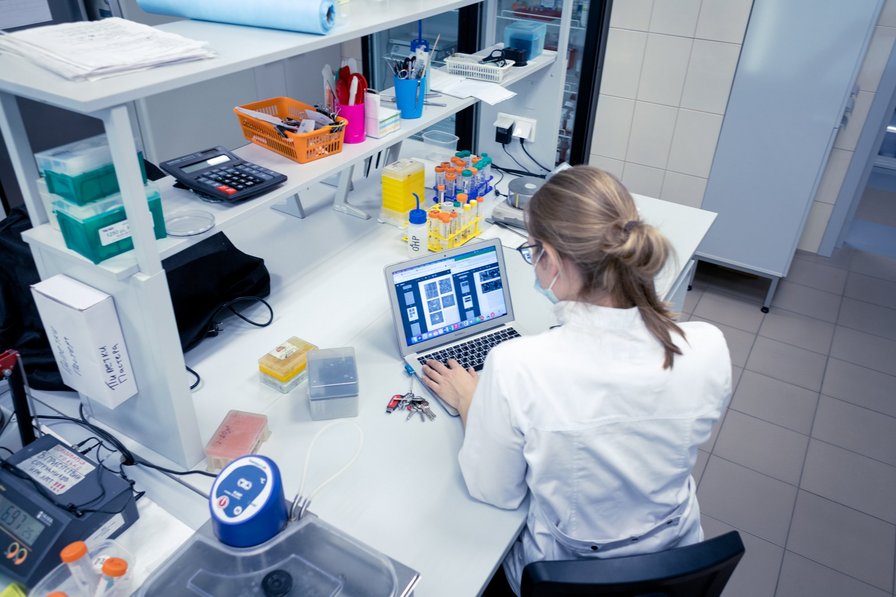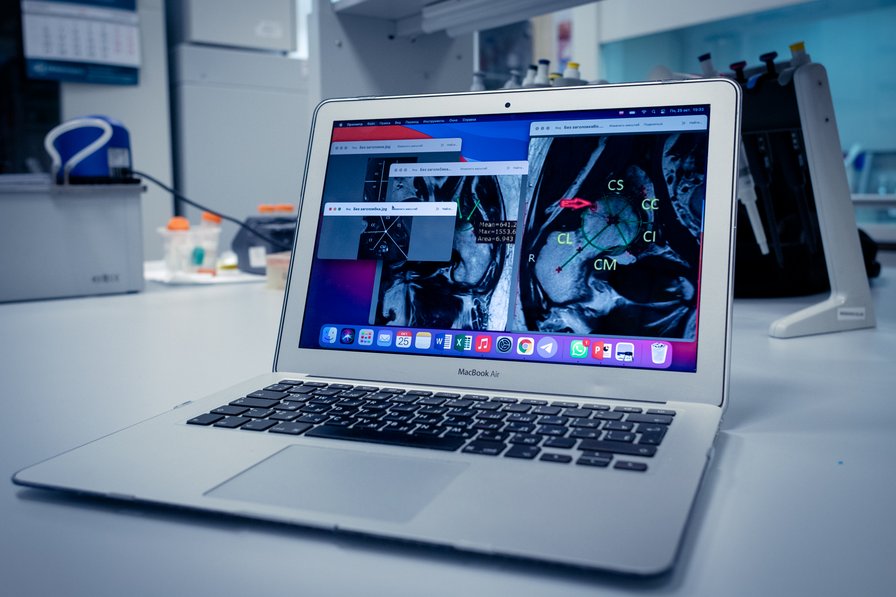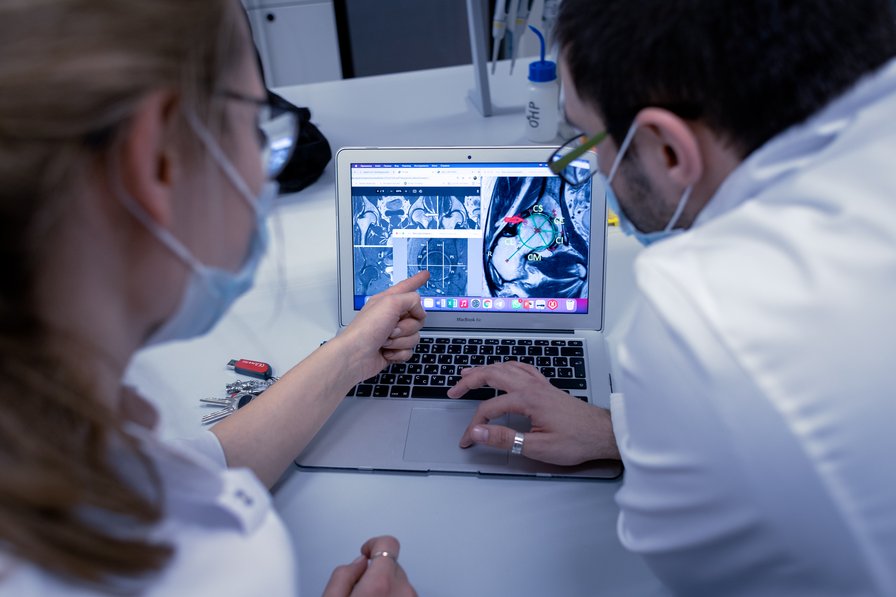24 Dec 2021
Pioneering the AI Approach to Better Healthcare
Arthritis and cancer are insidious and frightening diseases that can ruin your health or even kill. But AI-powered medicine is radically transforming the lives of millions and giving hope to people around the world.
The Sechenov University Hospital is famous for its highly qualified specialists and modern equipment. Every day its brightly lit corridors are full of people in need of professional help. And yet many more live too far away or find it very difficult to reach the hospital.
Dr. Aleksey Lychagin, Deputy Head of Laboratory of Smart Nanotechnology for Clinical Applications wanted to change this situation. For years his laboratory has been seeking new, more effective ways to treat osteoarthritis.
Experts work together
Hoping to speed up the diagnostic process, the doctor wanted to join medicine with data analytics.
The idea was to use AI to examine multiple images of hip joints obtained from MRIs or computed tomography to help doctors to determine the type of joint pathology, its localisation, predict the possible disease development and track the effectiveness of treatment while dynamically making necessary adjustments.
Such an approach would not only help doctors to improve the speed and accuracy of diagnosis but would also make medical expertise much more accessible for patients, allowing people even in the areas where there is a short supply of medical experts to get high-quality and immediate help. This often opens the way for timely medical treatment instead of surgery.
To implement this project, they needed an experienced partner to address IT development issues and the creation of an AI solution.
After months of searching, Lychagin made his choice in favour of Beeline, VEON’s digital operator in Russia. That is how the first AI Lab appeared in the hospital, where doctors and data scientists challenged critical diseases together, with the work funded by the Ministry of Science and Higher Education of the Russian Federation.
The collaboration between the medical staff and VEON’s AI experts required them to learn new skills for effective communication. Doctors had to master Agile planning and get used to constant chatting, while IT specialists had to learn complex medical terminology and joint anatomy.
The project team collected over 3500 depersonalised MRI studies of hip joints. The images were classified by four main pathologies and given a brief description.
Then a neural network was trained on them.



Now the AI model can offer doctors a second opinion based on MRI studies analysis, providing highly accurate conclusions and calculating the percentage of the area with joint damage. The accuracy of the service is over 80%, which is already an achievement, but the team is aiming for even better results.
“This is an unprecedented case not only for Russia, where AI has never been used to diagnose arthritis, but for the existing practice across the whole world!” says Dr. Lychagin.
Lychagin believes that the service will solve two important social problems. First, it will make medical expertise available to any person, regardless of the availability of local expertise. Second, it will help to diagnose pathologies at early stages, and cure them early enough, preventing arthritis and the need to operate, which will significantly reduce the burden on the healthcare system.
“It facilitates the doctor's work and minimizes the danger of the ‘human factor error’. Thus, it helps a specialist to consider all the nuances and issue the correct conclusion for choosing an appropriate treatment.”
More solutions on the way
Lychagin is not the only one optimistic about neural networks. In another room of the AI Lab, his colleague Dr. Peter Timashev and Aleksey Fayzullin are working on a breakthrough in the field of oncology.
“It all started with the hypothesis that examining healthy tissue surrounding a kidney tumour could help predict the course of disease and give us answers to many questions,” he explains. “If this is confirmed by AI, it will greeatly change the approach to oncology and potentially save a vast number of human lives.”
While testing the hypotheses, Peter Timashev and Aleksey Fayzullin realised their work could be applied to kidney transplants.
It has always been difficult to ascertain the health of a transplanted kidney and whether the graft will survive or not and thus have to be removed. Now with the use of AI, there is a 99% accuracy in determining the condition accurately.
The AI lab that has brought better healthcare to the patients of Dr Peter Timashev, Aleksey Fayzullin and Dr Lychagin is the result of a collaboration between a hospital and a mobile operator. The medical expertise of the Sechenov University Hospital has been fused with the AI knowledge of VEON’s Beeline mobile operator. Together they are creating solutions that benefit the people and save human lives.
Contact information